Any critic voting in the Sight and Sound poll that was announced yesterday (my coverage here if you care to compare lists) will tell you how impossibly difficult it is to select 10 films as the best of all time. Occurring every 10 years since 1952, this is really the only list that matters. They have to select with their minds and their hearts, and the two don’t always coincide. If you’ve seen all the masterpieces, how do you choose between all that is perfect? And how would you like to be the critic who finally displaced “Citizen Kane” as the best movie of all time?
I don’t have nearly as much pressure on my head (not yet), but it hasn’t stopped some of my friends from asking what are my all time favorites.
I tend to dodge the question (often pretentiously, I might add). “Well, how do you rank works of art anyway?” “Oh, you probably haven’t heard of them.” “I’ve just seen so much that it’s so hard to choose.” And then I’ll say something about how I’ve seen the Harry Potter movies a lot because they’re always on HBO and I have a sister with no qualms of re-watching stuff, so maybe those could be called some of my “favorites.”
Often, I don’t even like the word “favorite.” “Best” and “favorite” usually go hand in hand. If I called “Drive” the best movie of 2011, it’s because it’s the one I most want to see again AND because it’s the most important/best made/critic-y jargon bullshit.
There’s also the possibility that I just haven’t seen enough films. In fact, I know I haven’t seen enough. One day decades from now when my Excel spreadsheet of classic films to watch is completely marked up with yellow highlights, when I’ve written and read all I can about them and am looking back on my entire life of watching movies as opposed to looking forward to what’s coming out this Friday, then maybe I’ll make a decent list.
So for all those reasons and more, I’ve never officially made public what are my all time picks for best movies ever. I’ve always had titles in mind, but they’ve never been put on paper like this. It’s damned hard to do.
But I’ll concede that in this instant, “best” does not mean “favorite.” I’m not going to lie and pretend that some obscure foreign movie I’ve seen once two years ago means more to me than something I’ve seen dozens of times since I was a kid. At the same time, that movie I know by heart is probably not even in the same conversation technically or historically as that obscure foreign film.
It’s why I’ve decided to provide TWO lists. One has the movies I would call the most powerful and most significant movies ever made. The other has the titles that I could never forget. They define me as a critic and a person.
My Best
2001: A Space Odyssey (1968)
I hated “2001” the first time I saw it. Most people do. It’s mind-boggling and awe inducing for any audience, and it’s part of the reason Stanley Kubrick’s film has always been so polarizing. But the film is an operatic ballet of light, color, movement sound and the absence of all of them. It supplants traditional narrative with pure cinema at its most breathtaking. In the process, it reveals the mystique of the evolution of life. The more we grow, the less we can ever truly understand, and so it continues through the generations. “2001” has the power to carry us into that beautiful infinity.
Apocalypse Now (1979)
Like “2001’s” ability to show us we will never understand the depths of a higher power, “Apocalypse Now” shows how we will never understand the disgusting depths of humanity. It’s called “The Horror,” as the film and Joseph Conrad so eloquently put it. Francis Ford Coppola’s film is at once entrancing and torturous. He captures a sensation of madness in a way words, or any war film, cannot.
Breathless (1960)
“Grief’s a compromise. I need all or nothing.” “Breathless” is a film of attitude, sex, love and vitality. It’s all there is in life, and yet it’s really about nothing in particular. Jean-Luc Gudard’s innovative jump cut editing technique and handheld, mobile camera is so rapid and lively that it cuts through all the noise until all we see are the stylish, sexy, juicy parts. Its characters can’t focus on anything of consequence for more than a moment and we don’t really know a damn thing about them, but like Michel Poiccard’s taste in women, there’s something that “Breathless” has that all those other pretty films don’t: jive. Godard didn’t just set the standard for the French New Wave and all of modern cinema with “Breathless.” He defined cool.
Citizen Kane (1941)
“Citizen Kane” is the “greatest movie ever made” (although no longer) because its many influences on modern cinema are well deserved: its jumbled timeline, its cynical attitude, its dwarfing cinematography and its auteur presence. But its achievements are greater. “Kane” is a film of such energy, wit and gravity. It has moments of subtle beauty and devastating power. At its basest, Orson Welles’s story embodies the universal feeling of a man diminished. Kane is a giant amongst men, but Welles shows us there’s no such thing.
The Godfather (1971)
“The Godfather” is the rare masterpiece that has permeated the pop culture so thoroughly. It’s a perfect film, one that combines old-fashioned glamour, beauty and grandeur with sharp, modern poignancy and style. Every frame seems to burn like a photograph in your mind, existing out of time as a storybook memory of an idyllic world of justice and power. Despite involving characters of great violence and evil, Francis Ford Coppola’s film instills universal themes of family and honor that are as beautiful and true as any story.
Metropolis (1927)
The futuristic city of Metropolis is so striking in Fritz Lang’s masterpiece because it is any city. It is our city. It is our future. “Metropolis” is a film of class, rebellion and the strength of humanity. The imagery that would inspire art deco and sci-fi films for decades to come is so unique and foreign, and yet it represents a familiar tyranny looming over the horizon. Even with the newly found footage fleshing out the plot, its visual mystique alone still instills feelings of fear and revolution.
Psycho (1960)
“Vertigo” is credited as Alfred Hitchcock’s masterpiece because he delved all of his own fears and desires into his protagonist. But in creating the technical perfection that is “Psycho,” Hitch gave all of himself. “Psycho” is as gripping as any film ever made because it is an expression of pure cinema. It does not have a wasted moment or shot. Hitchcock changed the way people went to the movies, and he proved that special effects weren’t the only answer. But he did so not with a great story, a great performance or great psychological depth (although it has all of those); he made a movie, and nothing more.
Raging Bull (1980)
Jake LaMotta fought because he was desperate to feel something. The pain of his life hurt too much. Martin Scorsese’s “Raging Bull” is unlike any sports movie ever made. It pummels you with emotion until it feels like your knuckles are bleeding from pounding a brick wall. It’s a heavyweight film that gets at our primal feelings of jealousy, rage and passion. Robert De Niro and Joe Pesci’s dual performances are the finest of their careers, and the black and white cinematography gives “Raging Bull” a gritty realism that hits closest to home.
Rashomon (1950)
“I just don’t understand.” Those are the opening lines to Akira Kurosawa’s first and greatest masterpiece, “Rashomon.” In the Golden Age of Hollywood, we trusted the movies. Kurosawa for the first time made us question our senses. By compounding stories within stories, “Rashomon” became a labyrinth of perspective in which a murder mystery has four distinct events and outcomes. At once, all four are true and none of them are true. With the most ferociously spirited actor of all time as its star, Toshiro Mifune, it’s a dynamic, bizarre, other-worldly film of such varied emotions and themes. And yet for all its deception, “Rashomon” is not a film of lies. It’s a film of hurtful truths about the darkness of the world and humankind that simply don’t add up.
The Third Man (1941)
When shooting wrapped on “The Third Man,” a crew member gave Carol Reed a protractor so that he could level out his camera after seeing all the canted angles he used. “The Third Man” is the most distinctive looking noir, if not movie, ever made. It plunges us into a skewed hell in its aesthetic and its story, and yet it’s energized with an obtuse zither soundtrack and Orson Welles’s iconic presence. The dark, sewer passageways in the film’s climactic chase transport us to a new world without ever leaving our dirty city streets.
And here, because I found it near impossible to truly ignore any of these, are 90 more films to make an even 100.
Singin’ in the Rain, Cool Hand Luke, Lawrence of Arabia, Pulp Fiction, Vertigo, Alien, Casablanca, Chinatown, Taxi Driver, Network, 12 Angry Men, The Wizard of Oz, Some Like it Hot, Double Indemnity, Modern Times, Sherlock Jr., Sunrise: A Tale of Two Humans, The Battleship Potemkin, Sunset Blvd., The Searchers, The Grapes of Wrath, The Man Who Shot Liberty Valance, Pinocchio, Snow White and the Seven Dwarves, Who’s Afraid of Virginia Woolf?, Jaws, The Night of the Hunter, Fargo, Duck Soup, Manhattan, This is Spinal Tap, His Girl Friday, Brazil, The Big Lebowski, On the Waterfront, The Seventh Seal, L’Atalante, The Seven Samurai, Ikiru, Throne of Blood, Nashville, Wild Strawberries, Fanny and Alexander, The French Connection, Platoon, Leaving Las Vegas, The Bicycle Thief, M, Touch of Evil, Man With a Movie Camera, Children of Paradise, Aguirre Wrath of God, The Up Documentaries, Un Chien Andalou, The Passion of Joan of Arc, Shoah, The Apartment, Do the Right Thing, Juliet of the Spirits, Le Samourai, A Fistful of Dollars, Star Wars, The Exterminating Angel, The Conversation, F for Fake, Ran, My Dinner with Andre, The Last Picture Show, Hoop Dreams, My Neighbor Totoro, Days of Heaven, Easy Rider, Paths of Glory, Gone With the Wind, Hannah and Her Sisters, It’s a Wonderful Life, Notorious, Terminator 2: Judgment Day, Toy Story, Beauty and the Beast, Unforgiven, Brief Encounter, Peeping Tom, Solaris, The Red Shoes, La Jetee, The Graduate, Bonnie and Clyde, Dog Day Afternoon, Reservoir Dogs
The first thing you’ll notice about this list is that there’s not a single movie from the 2000s on it. That’s not a mistake, and it’s not because there aren’t movies I would deem worthy of one day cracking that list of 100. For me, there’s some sense that these movies have to prove the test of time. They need time to leave a legacy and mark a place in history. Their time will come, for some films sooner rather than later.
But beyond that omission, I’m contented with this list. It’s a decent representation of genres, decades and styles, each with their own impact on the history of cinema. I was desperate to get something fun on the list like “Singin’ in the Rain” or “Pulp Fiction,” but then how do you have a list without foreign films or without “The Godfather?”
The thing is, I could envision many of these films on my list of favorites. Something like “2001” or “Apocalypse Now” may be heavy to watch, but their allure is so compelling for me that I can watch them whenever.
My favorites then carry a different sort of weight. They mark personal landmarks for me, not historic ones. This list then is maybe not as diverse.
My Favorites
Casablanca (1942)
I never realized how lonely a film “Casablanca” is. All the people in this wartime purgatory are vultures pickpocketing money, murdering soldiers, conniving escapes, gambling, bribing, drinking and more. In the middle of it all is Rick, an uncaring, quick-witted tough guy stuck on a girl, who of all the gin joints in the all the world had to walk into his. And yet Michael Curtiz’s “Casablanca” has a marvelous allure of hug-yourself warmth. It sweeps you away in its luscious shadows on Ingrid Bergman’s immortal face, its soothing theme of “As Time Goes By,” its lively, snide and iconic dialogue and its themes of love, conviction, secrets and surprise. Has a love story ever had so many thrills, so many laughs and so many tears all at once? “Casablanca” doesn’t necessarily innovate, but it’s the finest example of the richest, most classical era of the movies. The first time I watched it, I knew it would be the start of a beautiful friendship.
Juno (2007)
I had been scribbling poorly written movie reviews for a few years before the fall of 2007, but things changed for me that year. Jason Reitman’s “Juno” caught me on a wave of unexpected spunk and good vibes. It was the season’s indie darling, and for the first time in my movie going life, I was part of the buzz. It helped that I shared a commonality with the nerdy cross country runner Paulie Bleeker or that Juno McGuff had the cynical wit, caring heart and natural beauty that would make any teenager fall in love. I decreed “Juno” the best movie of 2007 (a year with so many other great ones that I discovered then and later), and I felt vindicated that Roger Ebert agreed. What I’ve come to realize now is that there are a fair number of people, even Reitman enthusiasts, who plain hate “Juno.” To them, Diablo Cody’s uber-hipster, faux-intellectual dialogue was not just unrealistic; it was irritating. To me however, the way Juno channels Cody’s script represents an entire generation of kids and slang rolled up into one. Of course no one talks like she does, but that’s what makes her so iconic, memorable and funny. I didn’t just fall in love with Juno; I fell in love with the whole culture I was blessed to be a part of.
Lawrence of Arabia (1962)
If you really want to get lost in a movie, I’ve found no better one than “Lawrence of Arabia.” Some directors can’t even capture the mood in a room. David Lean captured the sensation of wandering alone in the vast, endless desert, and he made the experience hauntingly beautiful instead of desolate and ugly. Perhaps no film ever made has this same, strikingly natural beauty in every frame. But what’s more, Lawrence’s smarmy wit and subtly homosexual allure allows the film to drift free of time. “Lawrence of Arabia” is a wonderfully exciting and impressive film despite a lack of women or action. I’ve watched it both on a dinky TV screen in my home and projected in massive 70mm splendor, and I’ve been engulfed in it each time.
The Princess Bride (1987)
My dad had a list of about 10 movies he couldn’t wait to show me when he felt I was old enough. For a guy who went through high school and college in the ‘80s, you can venture a guess what some of these were. The most appropriate of them was Rob Reiner’s “The Princess Bride.” On first viewing, I appreciated its blend of comedy, action, romance, fantasy and family values. Today, I know every word. The dialogue is smarmy, but good-hearted. The story is silly, but storybook sweet. It’s a movie I’ll show to my kids someday. Like a young Fred Savage in the movie, they might not get it at first, but they’ll come around to enjoy even the kissing parts.
Psycho (1960)
So I had to have one repeat on these lists. “Psycho” isn’t just a technically perfect, monumentally important horror thriller as I stated above. It’s also intensely gripping in every moment. Bernard Hermann’s score sends chills down my spine in anticipation of every waking minute. The story, the mood and the atmosphere all leave me clutching the edge of my seat each time I watch it. I also said earlier that it wasn’t a great performance that made “Psycho” work, but damned if Anthony Perkins isn’t scary as hell in the role of Norman Bates. I once watched “Psycho” with a friend who somehow did not know the film’s massive twist ending, and I realized all over again how engrossing and shocking watching that film for the first time must be.
Pulp Fiction (1994)
What the hell is “Pulp Fiction” about anyway? It’s cryptic, nonsensical, nostalgic, perverse and even preachy, but damn if it isn’t the most fun I’ve ever had watching a movie. Quentin Tarantino’s story structure revolutionized movies, but so did his style and his voice in every character. In a way, he had invented an art film with a distinct flavor that has in some ways colored nearly every film in the 21st Century. But who other than he has ever really made a film like it? A close 11 or 12 on my “Best” list, “Pulp Fiction” is like the glowing substance from inside Vincent and Jules’s suitcase: so shiny, beautiful and wonderful, but what the hell is it?
Some Like it Hot (1959)
“I have this thing for saxophone players,” says a gorgeous looking Marilyn Monroe in a slinky black negligée to Tony Curtis. “Especially tenor sax!” Being a tenor sax player in high school myself, it was at this point that my libido more or less exploded. “Some Like it Hot” is one of the funniest, sexiest movies ever made. At the time, dressing in drag was breaking ground, not treading it. And it’s still infinitely more clever than anything that’s been done since. Only Billy Wilder could have imbued such madcap comedy with sultry romance. I love it for Curtis doing a bad Cary Grant impression for Shell Oil Jr. I love it for Jack Lemmon holding a rose in his teeth and then giving the best defense for gay marriage ever (Security!). And I love it for Marilyn for beaming from more places than just her face.
Spirited Away (2001)
An epiphany happens for a young observer of the arts when they experience something so new and so different and yet so remarkable that they lack the words to describe why it is so effecting. They turn to critics to see how others have put this work of art into context, and suddenly, a new kind of appreciation is born in everything. “Spirited Away” did that for me at the age of 12. I don’t recall reading reviews after the fact, but I knew watching Hayao Miyazaki’s engrossing and fantastical animated masterpiece was unlike anything I had ever seen before. Its story was troubling, its lead character was unlikeable, its many images demanded patience and attention to embrace its charms, but it mystified me. “Spirited Away” is a story about conviction and individuality. It’s about overcoming familiar temptations. It’s a movie that can motivate someone to seek out more magical films like it so that one day you could make a list like this.
Star Wars (1977)
It’s become unfashionable to be a “Star Wars” fan. The prequels, the re-releases, the 3-D, the undying cash cow of increasingly embarrassing video games, and of course the fans themselves; these are things that have ruined George Lucas’s film for generations who once loved it. Growing up with the franchise, “Star Wars” became one of those movies I took for granted. It was so pervasive and familiar that I preferred to watch “The Empire Strikes Back” and “Return of the Jedi” for things like Vader’s big twist and the Ewoks. But revisiting the original “Star Wars” is as much a treat as it’s ever been. The film has a magical mystique and cozy, joyous and campy charm that’s all but absent in our dry blockbusters of today. We see that in the iconic sound effects, the colorful creatures in the Mos Eisley Cantina and in Han Solo’s hilarious one-liners. People complained upon its release that “Star Wars” ruined Hollywood, that all movies would be loud, busy, one-dimensional action movies. But now I just wish more movies were like it.
Toy Story (1995)
My grandmother recalls taking my sister and I to the theater to see “Toy Story” in 1995. I was 5, my sister 3. This was not my first trip to the big screen, but most certainly my sister’s. And here is a movie that looked so strikingly different from anything we could’ve possibly seen on TV or elsewhere. What a treat it must’ve been then for my grandmother. Could Pixar have known that they were making one of the most influential movies of the century? 17 years later, the original is still ahead of its time for its innovative digital animation. It does not have the radical story that “WALL-E” does for instance, but its hilarious and instantly iconic screenplay is not merely funny and good-hearted. By the time Buzz is flying with Woody through the sky, “Toy Story” is also a soaring inspiration.
So there you have it. Yes, it is a fairly different list than my “Best,” but I can’t bring myself to argue with either list. You’ll notice that only three of the 10 did not also make my list of Top 100, with “The Princess Bride” being the only one not from the 2000s. Could I make a case for it as a masterpiece alongside “2001?” It’s not inconceivable, but why try?
I knew going in that there were at least five films that were definitely on that Top 10 Best list, but the favorites were much harder in a way. I struggled to choose “Toy Story” over all the other Pixar classics. I struggled to choose “Princess Bride” over other dumb ‘80s comedies. I struggled to choose “Juno” over the 2000s films I placed above it in my Best of the Decade list and over the other movies I’ve called the Best of the Year.
These lists are supposed to be impossible. For anyone who finds it easy, that person likely hasn’t exposed themselves to as many films as they should.
So I encourage you to put your own picks in the comments. If I’ve excluded one, it doesn’t mean I don’t like or love it (although it very well could). The beauty of these lists is that no one will have the same 100 or possibly even 10, and yet everyone can and will defend their choices with such passion that no one will be wrong (except Armond White. “A.I.”? Really? Come on.)
I guess you could say that after so many words that this has been a vanity project for me. But then what good are lists if we can’t flaunt or opinions? Hopefully I’ve shed some much needed light on mine.
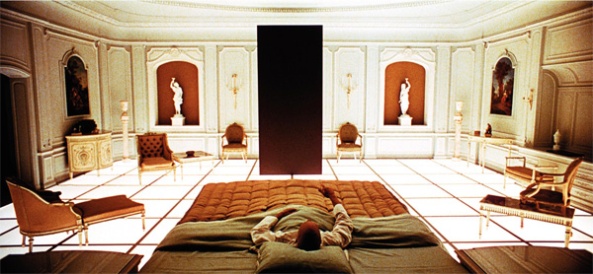
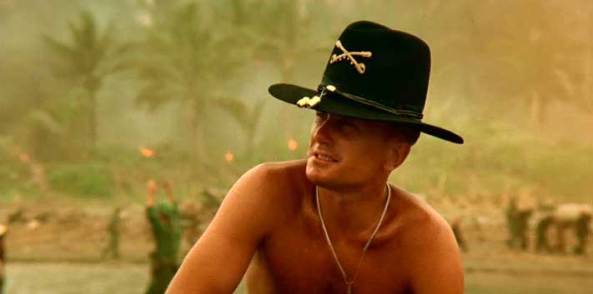


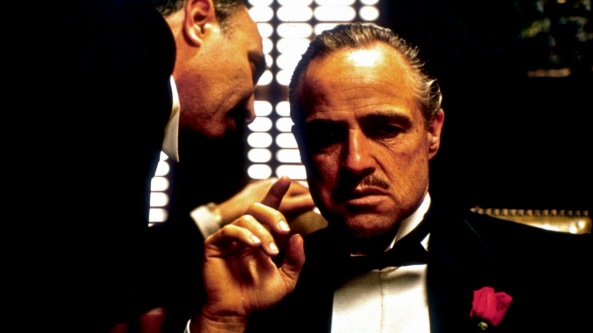
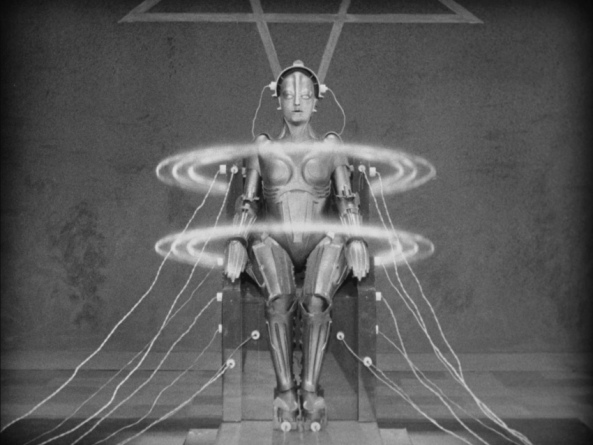

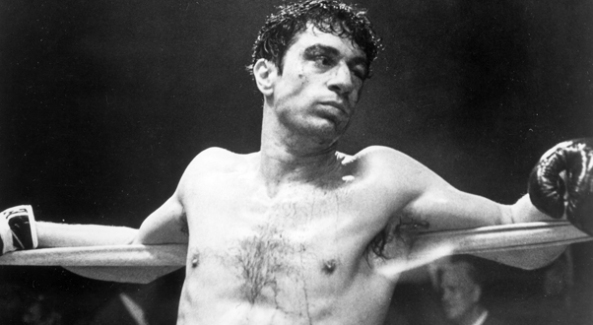
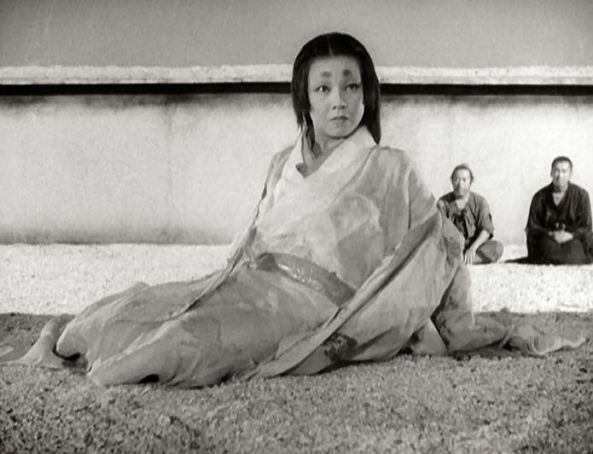
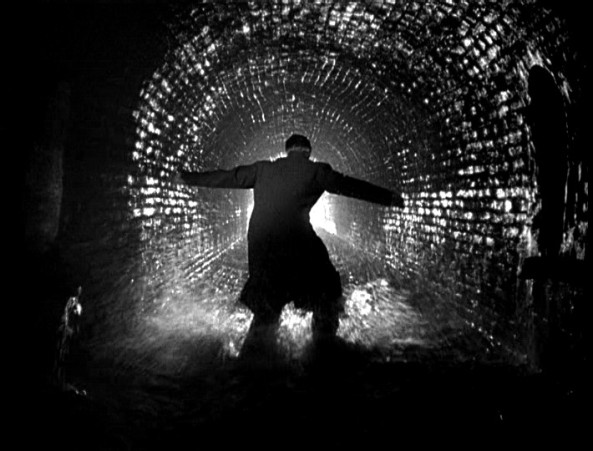
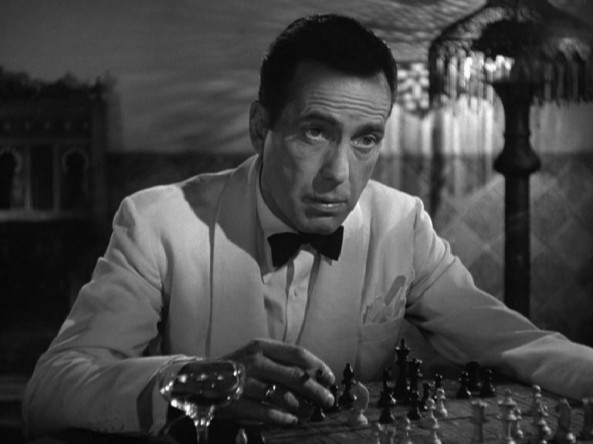

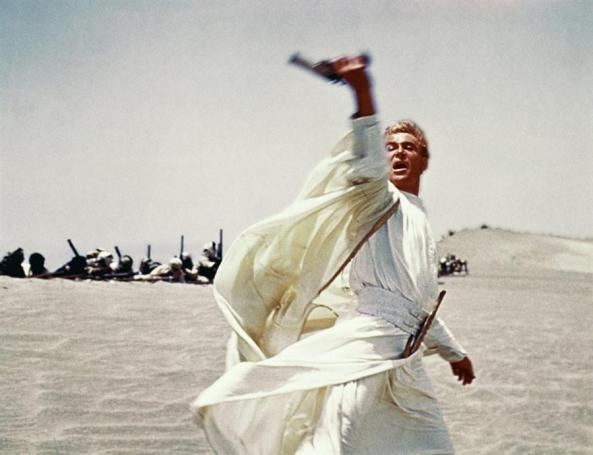


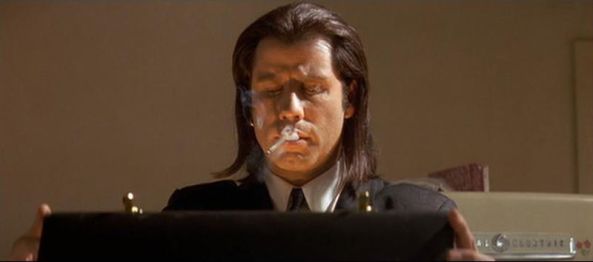

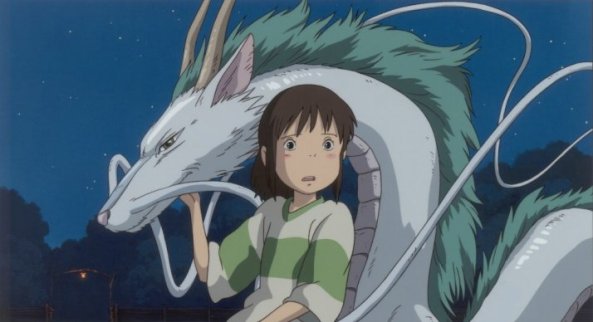

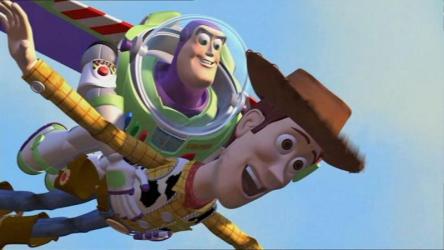
Great list, Brian. Made me want to go back and revisit a lot of these (probably will watch Casablanca tonight, in fact). You did, however, leave out one of my favorites: “In Bruges.” Witty, dark, comical, tragic. Beautiful cinematography, wonderful soundtrack, etc. etc. etc.
Great list! One of my favorites, as I am sure you know, is Miracle on 34th Street. It touches the
Heart at a special time of year. Btw, I am surprised to not see Tree of Life on your list.